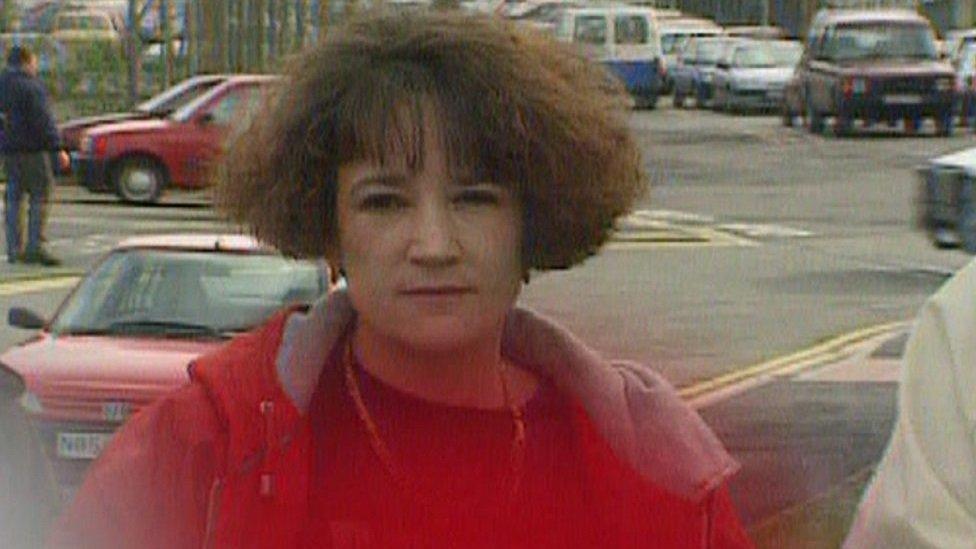Annette Hewins death: Wrongful conviction 'took toll on health'
- Published

Annette Hewins, pictured in the 1990s, was arrested eight months after the fatal fire
The son of a woman who was wrongly convicted of starting a fatal fire said the miscarriage of justice had "taken its toll" on her mental heath, an inquest has heard.
Annette Hewins, 51, was jailed in 1997 for the deaths of Diane Jones and her two daughters in Merthyr Tydfil in 1995.
Her conviction was quashed, external in 1999.
She died in February 2017 less than 24 hours after being detained in a mental health unit, a court was told.
Ms Hewins started using heroin in jail and had mental health issues, a jury at Pontypridd Coroner's Court heard.
She served 18 months of a 13-year prison sentence following the deaths of 21-year-old Diane Jones, Shauna, two, and Sarah-Jane, 13 months, before she was released.
Her son Nathan Hewins told the inquest "following the miscarriage of justice, everything had taken its toll on her".
He said concerns about his mother's mental health increased in the months before she died.
'Opiate withdrawal'
She would shut herself in her room for long periods and would deny she was using drugs, the court heard.
The day before she died, paramedics were called to her home.
"She locked herself in the bathroom - she let me in and was getting quite aggressive," Mr Hewins told the inquest.
"I carried her out into the garden. I was concerned about her mental health but physically she seemed fine."
Ms Hewins was taken to Royal Glamorgan Hospital and detained under the Mental Health Act, the court was told.
There was a plan to monitor her opiate withdrawal and for medication to be given as necessary.
Mr Hewins said his mother had asked for medication to help with withdrawal symptoms but did not recall her being given any.
"She was lying between two chairs shaking and shouting 'this is dangerous - doctors hold me - I'll have a bloody heart attack'," he said.
High blood pressure
The inquest heard from the doctor responsible for her care overnight that she was observed every four hours but was not given ECG (heart) monitoring because she would not have been able to tolerate it.
Ms Hewins was not given an opiate substitute because it was a specialist drug that could not be easily prescribed without an ECG or other measurements.
Some observations were missed and another doctor was concerned about Ms Hewins' very high blood pressure and symptoms of heroin withdrawal.
Ms Hewins was found to be unresponsive at about 16:50 and did not regain consciousness.
The inquest continues.